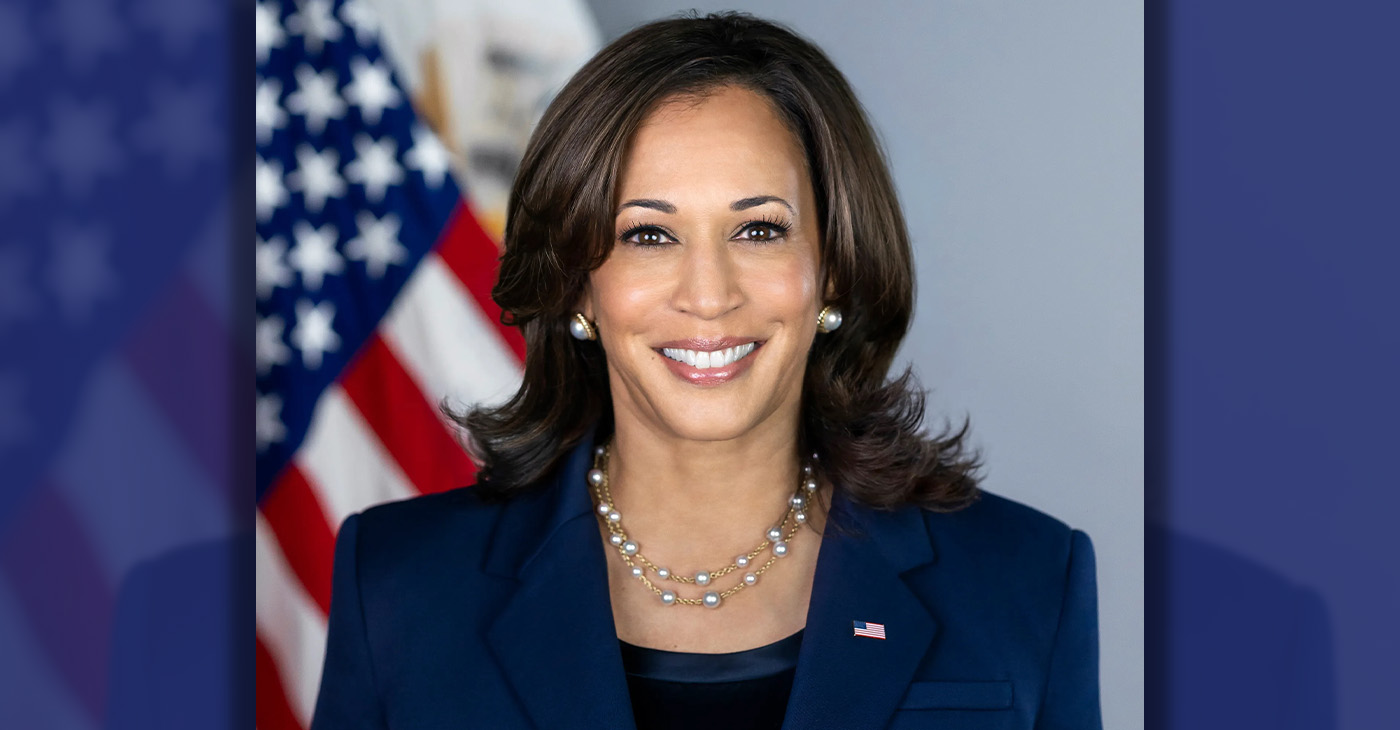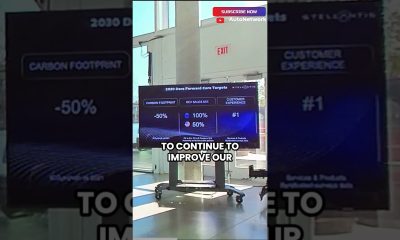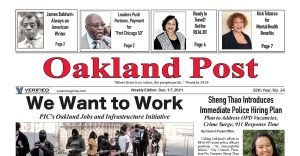Business
CEO Kobi Wu is changing the face of advertising with VisuWall
ROLLINGOUT.COM — Kobi Wu is the founder and CEO of VisuWall Technologies.
By Porsha Monique
[/media-credit] Porsha Monique
Kobi Wu is the founder and CEO of VisuWall Technologies, a platform where vacant storefront windows become smart eye-level media placements, delivering a new advertising channel and metrics that matter in just a few clicks. Wu is a former music industry executive and has 18 plus years of marketing and advertising experience. She’s worked with global companies producing customer experiences, brand strategies, content and media plans for Nike, Spotify, Smirnoff, Johnnie Walker, Ciroc Vodka, Google, JetBlue and a host of others. Before founding VisuWall, Wu was the SVP of Strategy and Creative for Combs Enterprises where she led strategy for the chairman’s portfolio of brands.
Rolling Out recently spoke with Wu to discuss VisuWall, her career path, her leadership style and much more.
How did you determine your career path?
My career path was inspired mostly by my personal interests, and these are not at all linear or singular. I get completely immersed with each subject during the various phases of my career. From architecture to the music business to the consumer experience, and now being the founder of VisuWall I have layered my career with creative insights and a diverse set of skills that give me a very unique perspective that works really well for me.
What inspires you to show up at work every day?
I love what I’ve created in VisuWall and I like to explore the new heights it will go. Working on the business every day fuels new ideas, new ways of working, and allows me to meet new people.
Please describe your role as CEO.
As CEO of VisuWall my role is to make sure the team has the tools they need to be successful (resources, answers and insights) and then get out of their way so that they can do their job. My role is to keep my eyes on the VisuWall North Star and make sure that the team keeps that vision top of mind in all that they do.
What is the mission of your organization?
VisuWall is a platform where vacant storefronts become smart eye-level media placements, delivering a new advertising channel and metrics that matter in just a few clicks. Our expertise with consumer experiences and care in bridging relationships with property owners provides transparency, efficiency and ROI with each and every placement.
Who or what motivates you and why?
My son is a big motivator for me. He was present when I first pitched the idea at the Entrepreneurs Challenge at NYU in 2015. He was with me when I stopped to take pictures of buildings I was interested in for the model. He heard me talking to my husband about throwing in the towel and said, “Ummmm. Momma you can’t quit. We’ve worked too hard. I’ve had to stand and watch you take too many pictures of buildings for you to quit now. This is our thing!” I appreciate that he sees me working and building something. He knows it hasn’t always been there and we have to work to keep it. So yeah, he motivates me.
What are the do’s and don’ts for young women in business?
- Do be yourself and consider how you want to be perceived.
- Do make sure you take your seat at the table – literally and figuratively. Show up and show up ready to be heard.
- Do make sure you are learned and coachable – it’s a delicate balance sometimes.
- Don’t forget to look around you and advocate for someone else you believe in whether they are senior to you, junior to you or standing next to you as a peer.
- Don’t let someone’s opinion of your idea sway you from putting it out there. Take a pause or pivot if you must, but keep pushing.
Name three successful female role models and explain why you admire them.
I really admire women in business who will take a beat to support other women in business. By that I mean women who will listen to someone’s story, help them work through a need, and maybe even go so far as to put their weight behind someone when they believe in something. Oprah, Michelle Obama or someone else in that stratosphere, are easy to mention, but I have been moved by some less obvious names – perhaps not household names- but names that carry their own [weight] on a lot of levels.
Morgan DeBaun, Founder & CEO of Blavity: When we met, we both came to the table cold, only knowing each other’s name and company accomplishments, but nothing about each other’s personal background. [We had] no friends in common, no jobs at the same place. But she came to the table knowing where I’ve been, what I’m working on and with a vision of how we can perhaps stay connected and work together. We listened to each other, laughed a bit and after an hour I walked away with the kind of ally who will advocate for me and VisuWall and vice versa. I also really, really enjoy Morgan’s instagram feed and appreciate how she’s living her best life.
Isa Watson, Founder & CEO Envest: Isa and I sat on a panel together at Columbia. At that point, I was pre-funded and working through what seemed like an eternity of building traction with no resources. Several months later we met for coffee and a pastry. She asked me about my investment strategy and the next thing I knew she was encouraging me to shift gears, take control and play my cards differently. She was right. I am now funded and it was all about that mind shift.
Marissa Nance, Founder, Native Tongue Communications: Marissa is family. She has worked 25+ years at OMD and recently launched a new entity called Native Tongue Communications. Because I’ve stayed at her home in LA I’ve seen Marissa’s work ethic live and in person. She rises [early] to be able to work on Eastern Standard Time and goes hard all day, making deals and helping her clients understand advertising to diverse groups of people. In between she’s taken time to share resources, make introductions (in fact Morgan was one of those introductions) and has helped me strategize for VisuWall pretty much from day one.
How do you approach business challenges?
There is always a pivot or a level up in business. Running VisuWall, the day to day challenges require a certain kind of mental preparedness that I often liken to sports. Proficiency in simple things like accounting, client management, marketing, and operations is like being able to make a free throw or a layup in basketball. I also like to know and study the players. It makes a huge difference to know who you’re playing with, how they play and what motivates them. It allows you make smarter moves. Then when you come across complex situations like investor presentations, hiring teams, managing distribution of funds, etc., all of those basic skills come into play and knowing them well allows you to level up for the dunk.
How do you evaluate talent you are hiring and what are the skill sets you’re looking for in this market place?
When I am hiring talent I am absolutely looking for knowledge of their craft, but equally a combination of independence, willingness to roll up his/her sleeves, likeability, coachability and creativity. VisuWall uniquely combines two otherwise disparate industries and so anyone who works with us needs to be dexterous enough to understand and apply insights from the other side of the marketplace and the people involved.
Describe your leadership style.
I’m a steward of the VisuWall ship. I work towards strategic goals and try to manage the processes to ladder up to those goals. I like to think I’m a casual leader because I’m rather laidback on most days, but in recent years I’ve realized it’s actually only my attire that is casual: sneakers, tee shirts and jeans; but I’m actually quite process driven.
This article originally appeared in Rollingout.com.
Business
V.P. Kamala Harris: Americans With Criminal Records Will Soon Be Eligible for SBA Loans
Speaking in Las Vegas on Jan. 27, Vice President Kamala Harris announced a forthcoming federal rule that will extend access to Small Business Administration (SBA) loans to Americans who have been convicted of felonies but have served their time. Small business owners typically apply for the SBA loans to start or sustain their businesses.

By California Black Media
Speaking in Las Vegas on Jan. 27, Vice President Kamala Harris announced a forthcoming federal rule that will extend access to Small Business Administration (SBA) loans to Americans who have been convicted of felonies but have served their time.
Small business owners typically apply for the SBA loans to start or sustain their businesses.
Harris thanked U.S. Rep. Steven Horsford (D-NV-04), the chair of the Congressional Black Caucus, for the work he has done in Washington to support small businesses and to invest in people.
“He and I spent some time this afternoon with business leaders and small business leaders here in Nevada. The work you have been doing to invest in community and to invest in the ambition and natural capacity of communities has been exceptional,” Harris said, speaking to a crowd of a few hundred people at the Brotherhood of Electrical Workers Hall in East Las Vegas.
On her daylong trip, Harris was joined by Horford, SBA Administrator Isabella Guzman, Interim Under Secretary of Commerce for Minority Business Development Agency (MBDA) Eric Morrissette, and Sen. Catherine Cortez Masto (D-Nev).
“Formerly incarcerated individuals face significant barriers to economic opportunity once they leave prison and return to the community, with an unemployment rate among the population of more than 27%,” the White House press release continued. “Today’s announcement builds on the Vice President’s work to increase access to capital. Research finds that entrepreneurship can reduce recidivism for unemployed formerly incarcerated individuals by as much as 30%.”
Business
G.O.P. Lawmakers: Repeal AB 5 and Resist Nationalization of “Disastrous” Contractor Law
Republican lawmakers gathered outside of the Employee Development Department in Sacramento on Jan. 23 to call for the repeal of AB5, the five-year old California law that reclassified gig workers and other independent contractors as W-2 employees under the state’s labor code.

By California Black Media
Republican lawmakers gathered outside of the Employee Development Department in Sacramento on Jan. 23 to call for the repeal of AB5, the five-year old California law that reclassified gig workers and other independent contractors as W-2 employees under the state’s labor code.
Organizers said they also held the rally to push back against current efforts in Washington to pass a similar federal law.
“We are here to talk about this very important issue – a battle we have fought for many years – to stop this disastrous AB 5 policy,” said Assembly Republican Leader James Gallagher (R-Yuba City).
Now, that threat has gone national as we have seen this new rule being pushed out of the Biden administration,” Gallagher continued.
On Jan. 10, the U.S. Department of Labor issued a new rule providing guidance on “on how to analyze who is an employee or independent contractor under the Fair Labor Standards Act (FLSA).”
“This final rule rescinds the Independent Contractor Status Under the Fair Labor Standards Act rule (2021 IC Rule), that was published on January 7, 2021, and replaces it with an analysis for determining employee or independent contractor status that is more consistent with the FLSA as interpreted by longstanding judicial precedent,” a Department of Labor statement reads.
U.S. Congressmember Kevin Kiley (R-CA-3), who is a former California Assemblymember, spoke at the rally.
“We are here today to warn against the nationalization of one of the worst laws that has ever been passed in California, which has devastated the livelihoods of folks in over 600 professions,” said Kiley, adding that the law has led to a 10.5% decline in self-employment in California.
Kiley blamed U.S Acting Secretary of Labor, July Su, who was the former secretary of the California Labor and Workforce Development Agency, for leading the effort to redefine “contract workers” at the federal level.
Kiley said two separate lawsuits have been filed against Su’s Rule – its constitutionality and the way it was enacted, respectively. He said he is also working on legislation in Congress that puts restrictions on the creation and implementation of executive branch decisions like Su’s.
Assemblymember Kate Sanchez (R-Rancho Santa Margarita) announced that she plans to introduce legislation to repeal AB 5 during the current legislative session.
“So many working moms like myself, who are also raising kids, managing households, were devastated by the effects of AB 5 because they lost access to hundreds of flexible professions,” Sanchez continued. “I’ve been told by many of these women that they have lost their livelihoods as bookkeepers, artists, family caregivers, designers, and hairstylists because of this destructive law.”
Activism
Oakland Post: Week of April 10 – 16, 2024
The printed Weekly Edition of the Oakland Post: Week of April 10 – 16, 2024

To enlarge your view of this issue, use the slider, magnifying glass icon or full page icon in the lower right corner of the browser window. ![]()
-

 Activism4 weeks ago
Activism4 weeks agoOakland Post: Week of March 20 – 26, 2024
-

 #NNPA BlackPress3 weeks ago
#NNPA BlackPress3 weeks agoCOMMENTARY: D.C. Crime Bill Fails to Address Root Causes of Violence and Incarceration
-

 #NNPA BlackPress3 weeks ago
#NNPA BlackPress3 weeks agoMayor, City Council President React to May 31 Closing of Birmingham-Southern College
-

 #NNPA BlackPress3 weeks ago
#NNPA BlackPress3 weeks agoFrom Raids to Revelations: The Dark Turn in Sean ‘Diddy’ Combs’ Saga
-

 #NNPA BlackPress3 weeks ago
#NNPA BlackPress3 weeks agoCOMMENTARY: Lady Day and The Lights!
-

 #NNPA BlackPress3 weeks ago
#NNPA BlackPress3 weeks agoBaltimore Key Bridge Catastrophe: A City’s Heartbreak and a Nation’s Alarm
-

 #NNPA BlackPress3 weeks ago
#NNPA BlackPress3 weeks agoBaltimore’s Key Bridge Struck by Ship, Collapses into Water
-

 Activism3 weeks ago
Activism3 weeks agoOakland Post: Week of March 27 – April 2, 2024

















































